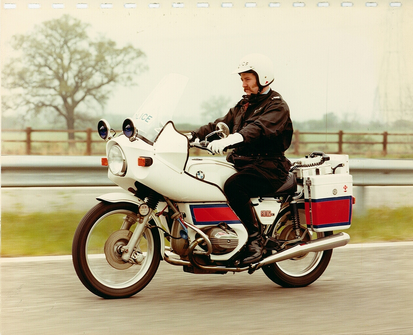 Officer Friendly, after terrible ridicule from other officers
Officer Friendly, after terrible ridicule from other officersabout his last name, decides to increase his fearsomeness
by way of mutton chops and mustache.
If I never see another article that says "5 things you didn't know about _____" or "12 shocking secrets you didn't know about _____" it will be too soon. That being said, I'm going to write one of these. Please forgive me. I (sort of) know not what I do.
The only thing that articles like this tell us is that people are desperately looking for a simple fix to their problems. While this article won't appear advertised on weather.com in a blinking banner with a muscular man or nearly naked woman, it does contain some simple things you can do to grow your business and yourself.
1. There is no substitute for hard work.
In the rare cases where you have an original idea that is engaging and potentially profitable, having the idea is not enough. You have to work at it and you will be wrong a lot. This is actually a great sign as it means that you have something unique. Invariably, whenever you think you've found a silver bullet you'll realize that there is a very strangely designed gun to load it into that will backfire way more often than you'd like. Still, if you were being chased by a werewolf I'll wager that you'd try your best to load that gun and if you had trouble, you would try until you got it right.
2. Interact with storytellers as much as you can.
At the core of every successful business is a story. It's a story you tell, others buy and then tell others about. I was recently listening to a podcast called The Entrepreneur's Radio Show which featured David Meerman Scott. Scott talked about the Monteverde Hotel in Costa Rica's Cloud Forest and said that they employed a journalist to create their content. Most hotels focus on the quality of their lodgings, but the Monteverde focuses on the experiences and lifestyles you can seek in its surrounding environment. In doing so, they've created a brand that inspires potential lodgers to dream. And by talking about this on the podcast, Scott put this story into my head. People remember stories--make sure you're telling the one you want other people to tell after you've closed your mouth.
The only thing that articles like this tell us is that people are desperately looking for a simple fix to their problems. While this article won't appear advertised on weather.com in a blinking banner with a muscular man or nearly naked woman, it does contain some simple things you can do to grow your business and yourself.
1. There is no substitute for hard work.
In the rare cases where you have an original idea that is engaging and potentially profitable, having the idea is not enough. You have to work at it and you will be wrong a lot. This is actually a great sign as it means that you have something unique. Invariably, whenever you think you've found a silver bullet you'll realize that there is a very strangely designed gun to load it into that will backfire way more often than you'd like. Still, if you were being chased by a werewolf I'll wager that you'd try your best to load that gun and if you had trouble, you would try until you got it right.
2. Interact with storytellers as much as you can.
At the core of every successful business is a story. It's a story you tell, others buy and then tell others about. I was recently listening to a podcast called The Entrepreneur's Radio Show which featured David Meerman Scott. Scott talked about the Monteverde Hotel in Costa Rica's Cloud Forest and said that they employed a journalist to create their content. Most hotels focus on the quality of their lodgings, but the Monteverde focuses on the experiences and lifestyles you can seek in its surrounding environment. In doing so, they've created a brand that inspires potential lodgers to dream. And by talking about this on the podcast, Scott put this story into my head. People remember stories--make sure you're telling the one you want other people to tell after you've closed your mouth.
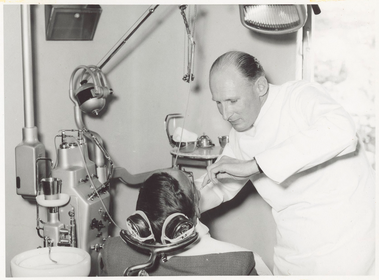 True story:
True story:The last time I went to the dentist I got two wisdom teeth
removed. The dentist sutured my cheek to my gums.
I haven't been back to the dentist in eight years.
3. Give something away as often as possible.
One of the best ways to gain people's trust is to earn it. It sounds simple, I know, but earning someone's trust is (and should be) very hard. If you're asking someone to buy something and then to trust you, you've automatically introduced doubt about your trustworthiness. Instead, if you offer help or a service for free, you earn their trust and respect. You're trying to help them rather than manipulate them into buying something. This also contributes to your story. In almost every case I can imagine, it is much more compelling to tell the story of the farm where the cows lived than it is to say you paid $5.89 for a gallon of milk.
4. Admit your weaknesses.
If you are honest enough to admit you're not a subject matter expert in everything, this will facilitate communication with others and also be good for your overall wellbeing. Working with people should be a process of discovery and not a solution. Through all of this self-exploration, you'll probably get off topic. This is OK. In fact, it is ideal. Getting off topic gives you depth instead of being a walking, talking sales pitch. You'll be more interesting at dinner parties, too. Everybody wins, even you.
One of the best ways to gain people's trust is to earn it. It sounds simple, I know, but earning someone's trust is (and should be) very hard. If you're asking someone to buy something and then to trust you, you've automatically introduced doubt about your trustworthiness. Instead, if you offer help or a service for free, you earn their trust and respect. You're trying to help them rather than manipulate them into buying something. This also contributes to your story. In almost every case I can imagine, it is much more compelling to tell the story of the farm where the cows lived than it is to say you paid $5.89 for a gallon of milk.
4. Admit your weaknesses.
If you are honest enough to admit you're not a subject matter expert in everything, this will facilitate communication with others and also be good for your overall wellbeing. Working with people should be a process of discovery and not a solution. Through all of this self-exploration, you'll probably get off topic. This is OK. In fact, it is ideal. Getting off topic gives you depth instead of being a walking, talking sales pitch. You'll be more interesting at dinner parties, too. Everybody wins, even you.
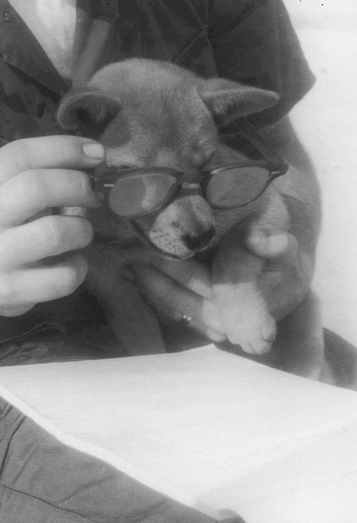 We get by with a little help from our friends.
We get by with a little help from our friends. 5. Offer yourself opportunities to be surprised.
One of my favorite things about myself is that I have a terrible memory. This past fall I did the landscaping in my font yard and as the winter draws to a close I am excited to discover clusters of daffodils. I've forgotten what color my irises are and I have no idea what my hyacinths will look like. Two days ago I discovered a pair of nail clippers I misplaced a few months ago and was so happy I jumped around my house with glee. I am not suggesting that you should endeavor to have a bad memory like me, but rather that you should try to frame things you cannot help as reasons for celebration rather than condemnation.
As a business owner, friend, lover, parent and/or child you've probably experienced enough disappointment in yourself. Instead of seeing your shortcomings as terrible things needing to be hidden, approach them as surprises. I was reading the January issue of The Sun yesterday and they included an excerpt from the guru Ram Dass' 2000 book, Still Here: "Before the stroke I wrote a great deal about the terrible things that can happen in aging, and how to cope with them. Now I'm happy to say that, having gone through what some would view as the worst, it's not so bad after all." This is the root of grace. I don't think that grace comes from age or requires anything special other than the strength to endure something and to view it in retrospect as not being all that bad.
Offering yourself surprise rather than disappointment is allowing yourself to have energy instead of denying it. Unless you are exceptionally fortunate, you will see disappointment in your life frequently. Why not convert some of it into joy?
6. At least once a year, do something that terrifies you.
If you've got a new startup or business, chances are that you're running calculations in your head on your burn rate, growth rate, and financials pretty constantly. Doing something that you find terrifying will help you realize your challenges aren't as scary as you think they are.
One of my favorite things about myself is that I have a terrible memory. This past fall I did the landscaping in my font yard and as the winter draws to a close I am excited to discover clusters of daffodils. I've forgotten what color my irises are and I have no idea what my hyacinths will look like. Two days ago I discovered a pair of nail clippers I misplaced a few months ago and was so happy I jumped around my house with glee. I am not suggesting that you should endeavor to have a bad memory like me, but rather that you should try to frame things you cannot help as reasons for celebration rather than condemnation.
As a business owner, friend, lover, parent and/or child you've probably experienced enough disappointment in yourself. Instead of seeing your shortcomings as terrible things needing to be hidden, approach them as surprises. I was reading the January issue of The Sun yesterday and they included an excerpt from the guru Ram Dass' 2000 book, Still Here: "Before the stroke I wrote a great deal about the terrible things that can happen in aging, and how to cope with them. Now I'm happy to say that, having gone through what some would view as the worst, it's not so bad after all." This is the root of grace. I don't think that grace comes from age or requires anything special other than the strength to endure something and to view it in retrospect as not being all that bad.
Offering yourself surprise rather than disappointment is allowing yourself to have energy instead of denying it. Unless you are exceptionally fortunate, you will see disappointment in your life frequently. Why not convert some of it into joy?
6. At least once a year, do something that terrifies you.
If you've got a new startup or business, chances are that you're running calculations in your head on your burn rate, growth rate, and financials pretty constantly. Doing something that you find terrifying will help you realize your challenges aren't as scary as you think they are.
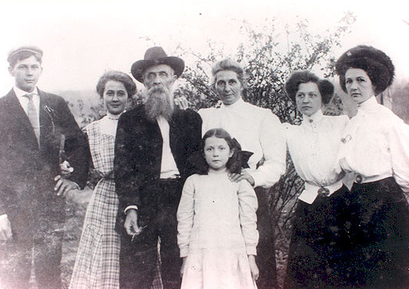 Branding is this dude's beard and those gal's hair.
Branding is this dude's beard and those gal's hair. They get it.
I was at a leadership conference in December 2013 where we were asked to write decisions for the following year that will help us achieve our goals. One thing about me is that I always follow through on my New Year's resolutions, so making this sort of decision is not something I take lightly. I discovered (rather, I admitted) that one of my greatest obstacles was a fear of social embarrassment. The most fear-inducing, self-loathing, distasteful and loathsome activity that I can possibly come up with is dancing.
The act of dancing isn't what bothers me so much, it's the fact that I'm not any good at it. I'd love to dance like a 1950s movie star, but I am clunky and lack confidence. I'm used to being fairly skilled at most things and I have a difficult time admitting when I have trouble, so being in an environment where each step is wrong and clearly visible is very difficult for me. I've not yet summoned the courage to go to dance lessons, but I plan on going soon.
Being content with content is what brand identity is all about. Spend the time to get to know yourself and your values, then transfer those values into a story. Tell that story to others and allow them to make it their own while still getting the key details right. Don't try too hard to make your brand be something it isn't, otherwise you stop branding and start advertising.
The difference between branding and advertising is simple: wearing a striped golf shirt because you like stripes is branding. Making sure that Greg Norman's shark is on every golf shirt you own is advertising. The distinction between these two is that in the former you allow yourself to be. Advertising is paying someone else to be you for you because you don't know who you are.
The act of dancing isn't what bothers me so much, it's the fact that I'm not any good at it. I'd love to dance like a 1950s movie star, but I am clunky and lack confidence. I'm used to being fairly skilled at most things and I have a difficult time admitting when I have trouble, so being in an environment where each step is wrong and clearly visible is very difficult for me. I've not yet summoned the courage to go to dance lessons, but I plan on going soon.
Being content with content is what brand identity is all about. Spend the time to get to know yourself and your values, then transfer those values into a story. Tell that story to others and allow them to make it their own while still getting the key details right. Don't try too hard to make your brand be something it isn't, otherwise you stop branding and start advertising.
The difference between branding and advertising is simple: wearing a striped golf shirt because you like stripes is branding. Making sure that Greg Norman's shark is on every golf shirt you own is advertising. The distinction between these two is that in the former you allow yourself to be. Advertising is paying someone else to be you for you because you don't know who you are.
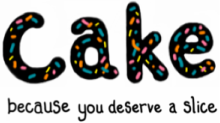
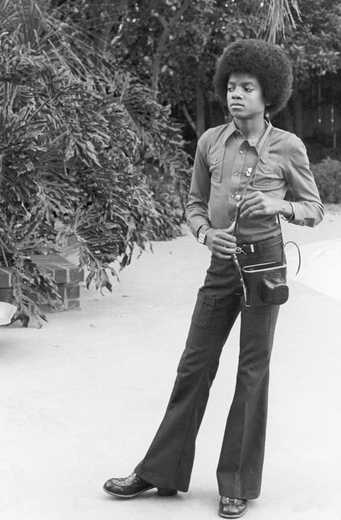
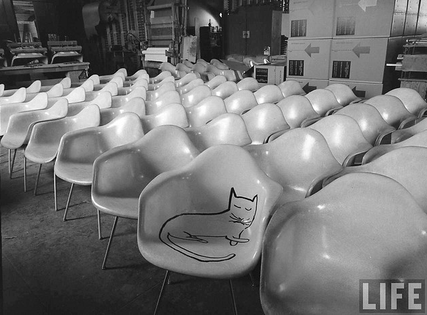
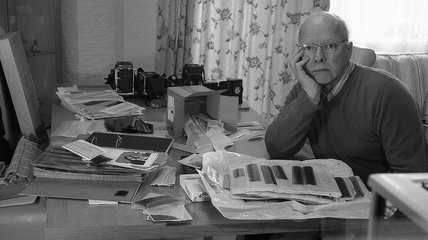
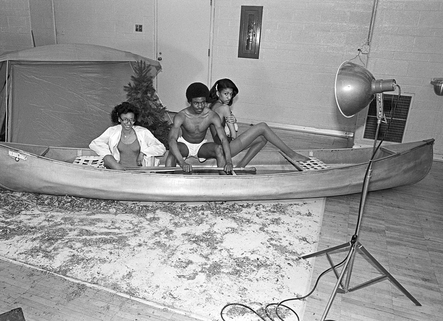



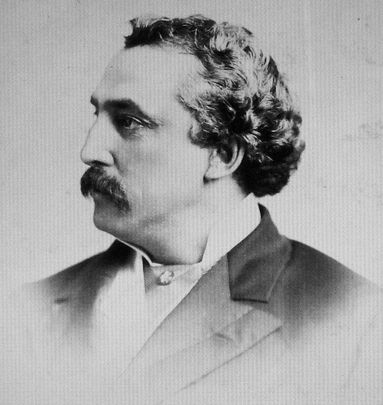
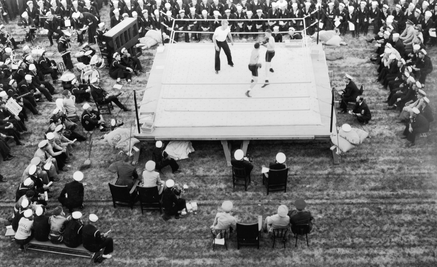
 RSS Feed
RSS Feed
